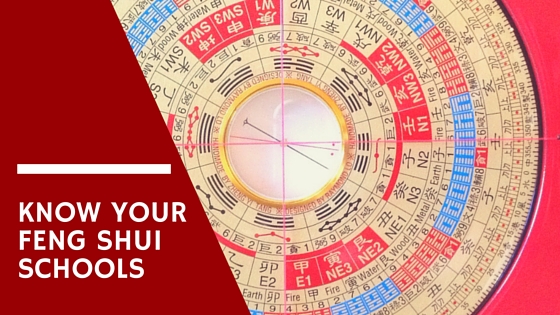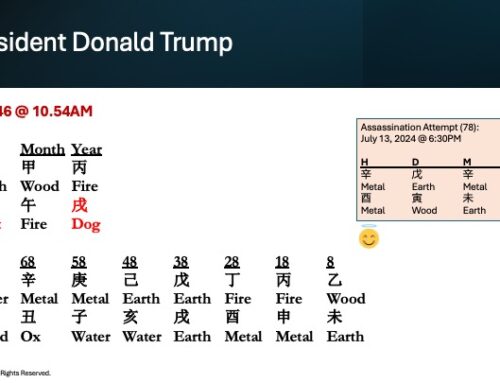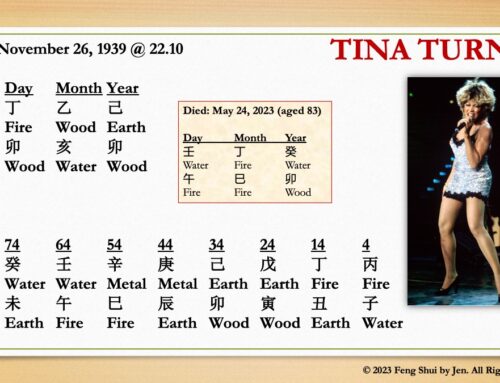
10 Things I Wish Everyone Knew About Feng Shui
This article was previously featured and originally published on MindBodyGreen on May 21, 2014.
As a Classical Feng Shui consultant, I have personally witnessed the downside to the sudden popularity of Feng Shui in the West. For one, the authentic meaning of the practice gets lost and misused from a logical and systematic body of ancient knowledge that it is, to a watered-down, diluted approach to commercialized quick fixes.
To honor this 6,000-year-old Eastern discipline, I’d like to highlight some common misunderstandings (and truths) about Feng Shui.
What Feng Shui Is Not:
-
It is not a religion or superstition.
Religion is defined as a set of systems in which a person believes in and worships of a supernatural or higher power. Superstition is normally associated with folklore and legends, stemming from religious or cultural beliefs. On the other hand, Feng Shui is a Metaphysics founded on the theory of Yin and Yang and the Five Elements – a body of knowledge related to the observation of the landscape (or environment) that has no direct affiliations with religion, spirituality, or superstition.
-
It is not a one-time event.
Because everything in life is in a constant state of flux, Feng Shui is not a permanent fix that you can apply and then forget about. The energy cycles in your environment will shift. People change too, such as your goals and relationships, your health, and work dynamic. Therefore, Feng Shui must be revisited so you can adjust your surroundings to align with your current and future endeavors.
-
It is not about interior designing.
The goal of Feng Shui is not about picking the prettiest piece of furniture. What you see and surround yourself with does have a psychological impact on you. But the aesthetics of your interior space is only but half the consideration. The invisible life force that is moving and flowing inside a home is more important. That’s why Feng Shui assesses first the environment, time, and the people before considering the physical objects inside the home.
-
It is not a product-based system.
Feng Shui has absolutely nothing to do with charms, trinkets, symbols, crystals, gemstones, and amulets. These ideas are part of the Western concept. It is not Chinese. Traditional Feng Shui objects used for dissolving negative energy are actually quite discreet and can often be incorporated into a home without giving away any inkling that Feng Shui has been used. The power of the discipline lies in the subtlety of the design. While products do have an “environmental affirmation” influence, the authentic approach is not to make you buy and display gaudy gadgets in your home.
-
It is not related to space clearing or clutter clearing.
My teacher, Grand Master Raymond Lo, once said, “You don’t need Feng Shui to tell you to pick up your socks.” Space Clearing is a religious or spiritual ritual that is intended to protect the inhabitants from misfortune. It is not a sub-system or part of “the art of Feng Shui.” While both Space Clearing and Feng Shui do touch on “energy” work, they are not the same. Like Feng Shui, Space Clearing has its own set of history and tradition, but this knowledge did not originate from China. So, let’s give each discipline its own independent merit!
What Feng Shui Is:
-
It is an ancient Chinese knowledge.
Feng Shui is founded on Yin and Yang and the Five Elements. Yin and Yang has a place in Taoist philosophy that describes and governs all things in the universe. The Five Elements is an organized study used to facilitate the workings of Yin and Yang. Their basic qualities and modes of interactions help you understand virtually everything that happens in the universe, from the workings of internal organs and human emotions, passage of time, to the influences in your physical surroundings.
-
It observes the unity of the internal and external worlds.
Feng Shui is a “macro” practice because it observes that there is a very real link between the external and internal spaces. Your home’s fortune has a direct influence from the environment – the curvature of the landscape, the formations of water and mountain, and the surrounding structures that shelter and protect it. That’s why, where you choose to build or buy a home, for instance, play an important role on how Qi will affect your life.
-
It considers the factor of time and space.
Time is an important variable in interpreting how Qi behaves and affects the spaces in which you live. Space is related to ascertaining the facing orientation of your home because it will dictate how Qi flows in and around it, and serves as a reference point for all subsequent computations. Aside from observing the physical landscape, Feng Shui also: (a) calculates the time factor with a Feng Shui calendar, and (b) takes directional measurements with a Feng Shui compass.
-
It is about the correct positioning and placement of key rooms.
Not only does Feng Shui help you understand where and how Qi behaves, it can also pinpoint what aspect of life (career or relationship) it will affect. For this reason, Feng Shui is useful in locating the placement of key rooms, such as your bedroom and kitchen, in order to optimize on using your space to positively support different areas of your life.
-
It considers the people aspect.
Feng Shui honors individual differences and recognizes every person will generally respond differently to the Qi qualities in their environment. So the same space may result in different outcomes for different people. Therefore, it’s not uncommon for a practitioner to gather certain personal information, such as your birth date, during a consultation. The information will be used to examine the dynamic relationships among the family members in the household, and direct how and where to scrutinize the Feng Shui challenges in your home.
In conclusion, the origins of Feng Shui are fundamentally shaped from generation to generation through the cultural paradigm. So it’s no surprise that it continues to have a close tie with Chinese culture and tradition. However, Feng Shui does not depend on its cultural aspects, geography, or socioeconomic and political structure, religion, or superstitious beliefs. The essence and foundation can (and should) be synthesized with other bodies of knowledge and philosophies, because it can be applied equally well to meet the specific requirements of societies and cultural ideals anywhere in the world.
Copyright Feng Shui by Jen LLC | All Rights Reserved | Materials may not be copied, translated, or distributed without prior written consent.





